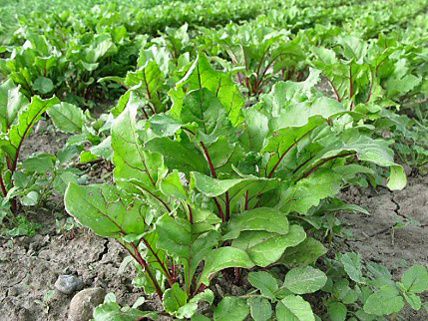The Food Safety Modernization Act: What you need to Know
Published
4/11/2017
By Stewart Jacobson,
In 2011, FSMA was passed by Congress to be the newest and toughest food safety program to come from the federal government involving leafy greens,

At this time only the Produce Safety Rule (PSR) has been finalized with many parts yet to be unveiled. The U.S. Food and Drug Administration (FDA) has been appointed to oversee the management of the program. Working closely with the National Association of State Departments of Agriculture (NASDA), FDA has developed the workings of the program.
FDA has been tasked with performing on-farm inspections on every farm in the United States that is producing vegetables for human consumption. There are exemptions to this which, detailed later. FDA has offered to the states the responsibility of education and training, inspection, enforcement, and program management. As a result, the Arizona Department of Agriculture has been awarded those responsibilities.
In
From February 28 through March 2, 2017, Teresa and Stewart returned to Orlando for the 2017 FDA/NASDA Food Safety Consortium to train on FSMA rules.
Inspections and audits are not the same. Inspections are usually mandatory and are performed to verify that certain standards are met while audits are usually voluntary and are performed to verify that a
The first part of FSMA, the Produce Safety Rule, has evolved to include water, employee training and hygiene, and soil amendments.
Let’s start with the definition of a “farm” which covers two types of farm operations https://www.fda.gov/Food/GuidanceRegulation/FSMA/ucm334115.htm
- Primary Production Farm: This is an operation under one management in one general, but not necessarily contiguous, location devoted to the growing of crops, the harvesting of crops, the raising of animals (including seafood), or any combination of these activities. This kind of farm can pack or hold raw agricultural commodities such as fresh produce and may conduct certain manufacturing/processing activities, such as dehydrating grapes to produce raisins and packaging and labeling raisins.
The supplemental rule proposed, and the final rule includes, a change to expand the definition of “farm” to include packing or holding raw agricultural commodities (such as fresh produce) that are grown on a farm under a different ownership. The final rule also includeswithin the “farm” definition companies that solely harvest crops from farms.
- Secondary Activities Farm: This is an operation not located on the Primary Production Farm that is devoted to harvesting, packing and/or holding raw agricultural commodities. It must be majority owned by the Primary Production Farm that supplies the majority of the raw agricultural commodities harvested, packed, or held by the Secondary Activities Farm.
This definition for a Secondary Activities Farm was provided, in part, so that farmers involved in certain formerly off-farm packing now fit under the definition of “farm,” as the packing is still part of the farming operation. In addition to off-farm produce packing operations, another example of a Secondary Activities Farm could be an operation in which nuts are hulled and dehydrated by an operation not located at the orchard before going to a processing plant. If the farmer that owns the orchards and supplies the majority of the nuts is a majority owner of the hulling/dehydrating facility, that operation is a Secondary Activities Farm.
- Primary Production and Secondary Activities Farms conducting activities on produce covered by the Produce Safety Rule will be required to comply with that rule.
Who is covered and exempt: A flow chart is available from FDA*
- Does your farm grow, harvest, pack or hold produce? YES NO
- Does the farm have $25k or less in annual produce sales? YES NO
- Is your produce one of the commodities that FDA has identified as rarely consumed raw**? YES NO
- Is your produce for personal/on-farm consumption? YES NO
- Is your produce intended for commercial processing that adequately reduces pathogens (for example, commercial processing with a “kill step”)? YES NO
If you answer YES to the first question and NO to the rest, you are covered.
The rule also provides a qualified exemption and modified requirements for certain farms.
To be eligible for a qualified exemption, the farm must meet two requirements:
- The farm must have food sales*** averaging less than $500,000 per year during the previous three years; and
- The farm’s sales to qualified end-users must exceed sales to all others combined during the previous three years. A qualified end-user is either (a) the consumer of the food or (b) a restaurant or retail food establishment that is located in the same state or the same Indian reservation as the farm or not more than 275 miles away.
*https://www.fda.gov/downloads/Food/GuidanceRegulation/FSMA/UCM472499.pdf
**https://www.fda.gov/downloads/Food/GuidanceRegulation/FSMA/UCM472887.pdf page 4,
***Total food sales include ALL crops intended for human and animal feed (alfalfa, corn, milo, grass, etc.)
Editor’s Note: Stewart Jacobson is a part time employee of the Arizona Department of Agriculture’s Agricultural Consultation and Training. He retired from the Meat and Poultry Inspection program after 33 years and now is a consultant with the ACT program assisting growers in developing a food safety program for the GHP/GAP program. He can be reached at 602-542-0950 or sjacobson@azda.gov.